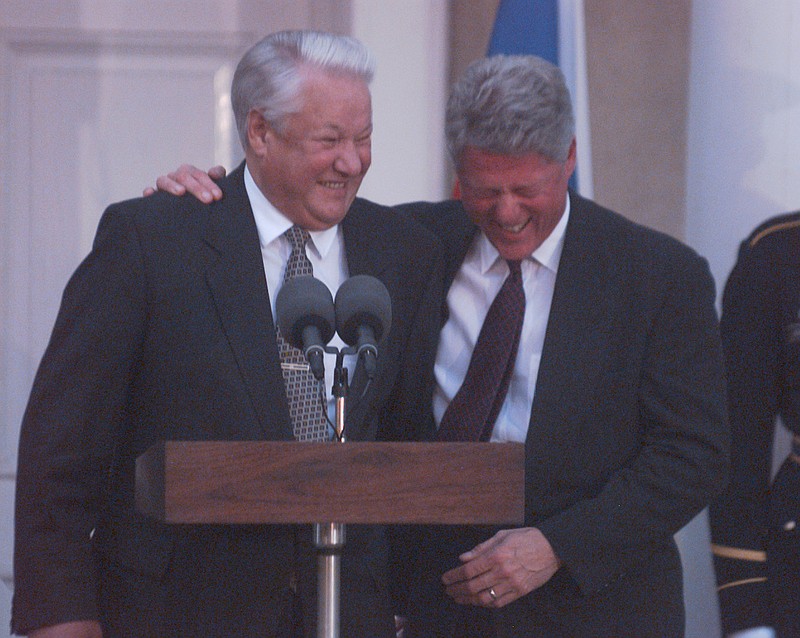The world has watched in shock, outrage and disbelief, as Russia's President Vladimir Putin brazenly invaded his sovereign neighbor Ukraine -- and entrapped much of the world in the mess he single-handedly created.
Then he made his godawful situation much worse by threatening the world with nuclear blackmail.
Suddenly the world finds itself trapped in the sort of superpower confrontation we thought we had put behind us forever.
It is hard for the world to even remember how things really were after the Cold War ended. But there was a short period of contemporary history when an American president ended up protecting a Russian president who became his unlikely partner in working for a more peaceful world -- but got himself into a predicament that would have made headlines around the world.
It was the autumn of 1994, late at night, after a busy day in which President Bill Clinton was hosting a summit meeting with his Russian counterpart. President Boris Yeltsin was Clinton's guest in the pale yellow Blair House, just across the street from the White House.
Suddenly, the quiet of Pennsylvania Avenue was broken by a lone figure in the street. He was stumbling around, wearing his underpants, and shouting "Pizza! Pizza!" Or maybe "Taxi! Taxi." Or maybe both.
A rather un-presidential Yeltsin was trying to hail a taxi so he could go somewhere for a midnight snack. Somehow, Yeltsin, who had a considerable and well-known problem with alcohol, had gotten past the Blair House guard. Our account here was provided by Clinton, in his interviews much later with historian and journalist Taylor Branch. In his 2009 book, "The Clinton Tapes," Branch wrote:
"Secret Service agents discovered Yeltsin alone on Pennsylvania Avenue, dead drunk, clad in his underwear, yelling for a taxi. Yeltsin slurred his words in a loud argument with the baffled agents. He wanted a taxi to go out for pizza."
Secret Service agents persuasively guided Russia's leader back into the comfort of the Blair House. How did the evening end? America's president said Russia's president "got his pizza." But if you think that was the end of the story, well, you probably never knew Boris Yeltsin. The next night, Yeltsin tried once again to go out for an unannounced whatever. Branch wrote:
"Eluding security, he made his way down the back stairs into the Blair House basement, where a building guard mistook him for a drunken intruder. Yeltsin was briefly endangered until converging Russian and American agents sorted out everyone's affiliation."
By that time, Yeltsin was already well known for his alcoholism problem. You can see videos of him stumbling at public events, often being helped to regain his balance by assistants.
Yeltsin resigned in 1999 -- and plucked Putin from relative obscurity to make him president. Fast-forward to the Obama years: As Secretary of State, Hillary Clinton famously tried to "reset" U.S. and Russian relations with Yeltsin's successor. We know how that turned out.
But it is worth reflecting upon the way things were, in that brief moment in history. It was a time when America and Russia, the world's largest nuclear superpowers, were working as one to make sure the world's nuclear arsenals were secure.
It was a time of hope for Russia's people. Also for Russia's generals, who were actually working with America's generals to secure a lasting peace. Now they are being led by a president who wants revenge -- against the country he thinks caused his Soviet empire to collapse.
Today, a flailing and desperate Putin has made his nation a global pariah. This time, it is Russia's people who need to demand a "reset."
Tribune Content Agency
